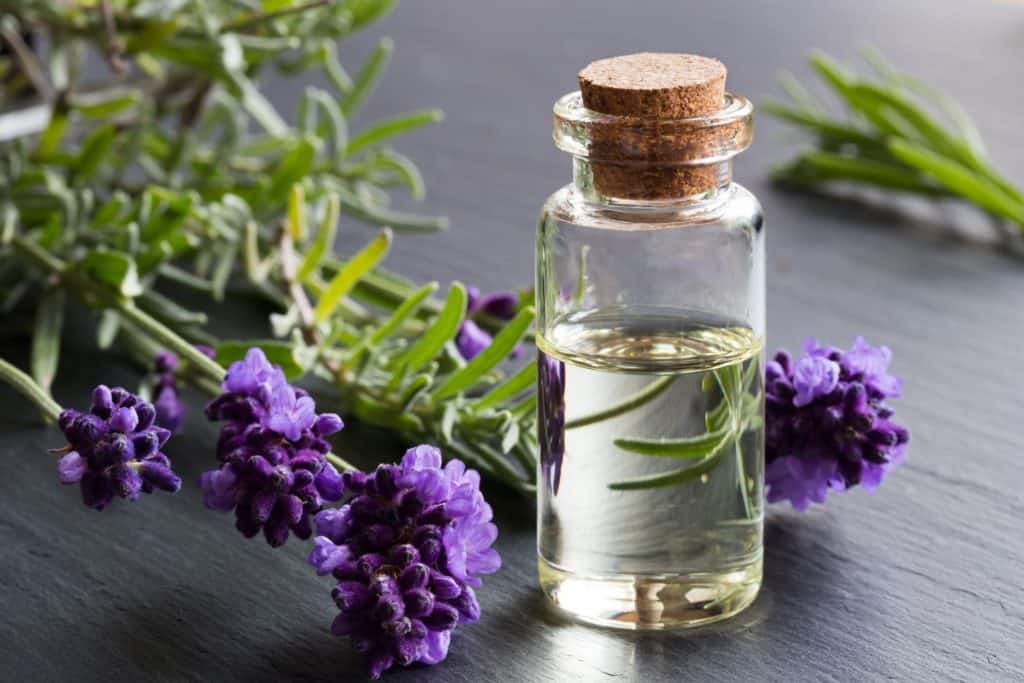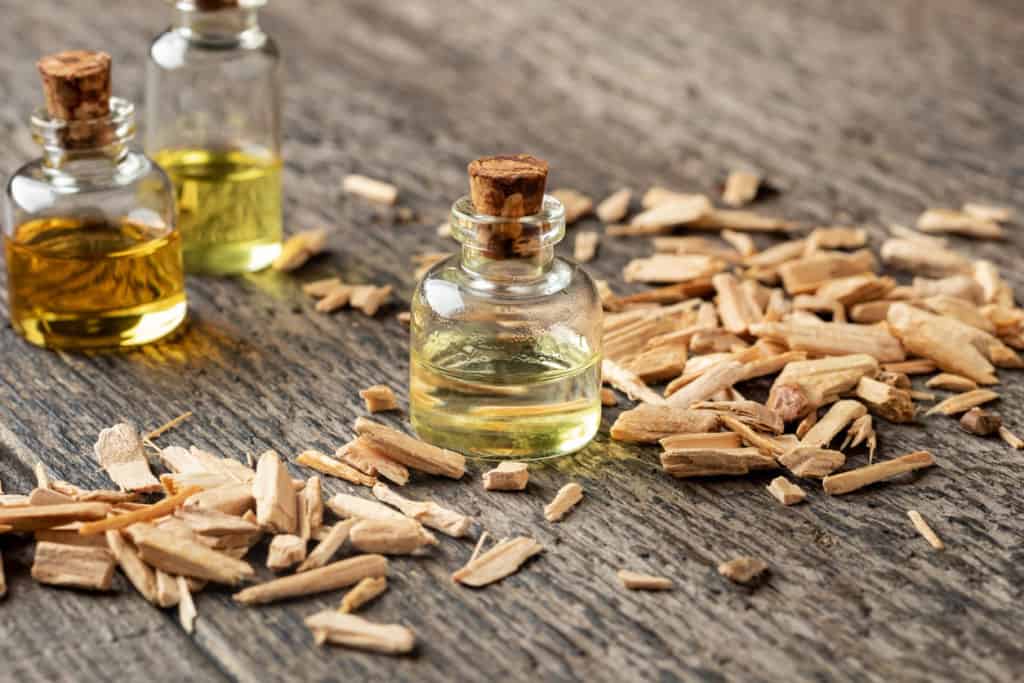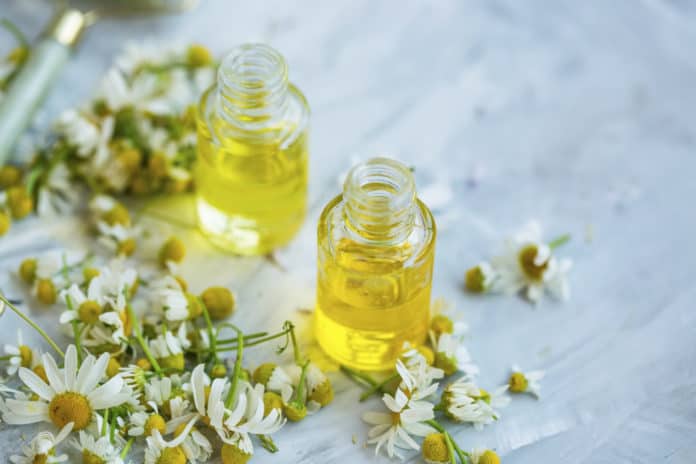There’s no question about it: stress is a part of life, and some amount of stress is healthy and essential. However, even though we know these risks, many of us are still left feeling like stress and worry are inescapable.
That’s where essential oils come in. Essential oils provide the healing properties of the plants they are extracted from, in a highly concentrated form. It has a powerful ability to combat stress and help you to feel calm and relaxed. They can be applied to pressure points, used in therapeutic massage, and for aromatherapy. Aromatherapy is the practice of inhaling the scent of essential oils to improve your well-being. When used properly, essential oils target the receptors in the nasal cavity associated with the limbic system in the brain. Some researchers believe that these scents trigger measurable responses in the brain that can induce relaxation, thus reducing feelings of stress, worry, anxiety, and depression.
“The ‘smell’ receptors in your nose communicate with parts of your brain (the amygdala and hippocampus) that serve as storehouses for emotions and memories. When you breathe in essential oil molecules, some researchers believe they stimulate these parts of your brain and influence physical, emotional, and mental health,” the University of Maryland’s Medical Center explains.
Please be guided that essential oils should never be ingested or applied undiluted to the skin without proper training or medical supervision. There’s not enough research on any one essential oil to prove it’s safe to swallow. Just remember, it’s always wise to talk to a health professional you trust before starting a regimen with essential oils.
Here are some of the best essential oils known for reducing stress and anxiety.
Lavender
Lavender is one of the most popular aromatherapy oils. This floral scent is fresh and lightly sweet, offering to balance and relaxing effect on your emotional and physical state. One study done on the oil suggested that inhaling it could reduce anxiety and improve moods, while another found that it could make patients both more relaxed and alert at the same time. Moreover, breathing it in has been found to help with alleviating headaches, while the use of the oil topically may help reduce the itching and swelling from bug bites.
It’s considered a nervous system restorative and helps with inner peace, sleep, restlessness, irritability, panic attacks, nervous tension, and a nervous stomach. It also helps to alleviate tension and muscle pain, allowing for maximum relaxation. Its relaxing and stabilizing properties – both physical and emotional, provides balance to any personality type.
How to use: It can be used on the palms of your hands when you’re tired or stressed and mixed with aloe vera gel or ice water to treat sunburn. Also, enjoy a relaxing lavender bath by combining several drops of lavender oil with a teaspoon of carrier oil or an unscented bath gel. Stir the mixture into warm bathwater just before entering.

Orange
It’s no surprise that this oil — packed with vitamin C — has tons of skincare benefits when applied topically. Several studies have linked orange and sweet orange essential oils to stress-relieving effects. This oil is also found in a variety of beauty products and touts promises to make skin appear brighter, smoother, and clearer.
“Statistical analyses revealed that compared to control conditions both ambient odors of orange and lavender reduced anxiety and improved mood in patients waiting for dental treatment. These findings support the previous opinion that odors are capable of altering emotional states and may indicate that the use of odors helps reduce anxiety in dental patients”, a 2005 study published in the journal Physiology & Behavior tested the effects of both lavender and orange essential oils on people in dental waiting rooms.
As for health-based benefits, studies have found that orange may help treat anxiety and aid in some pain relief.
For safety purposes: This bold and zesty citrus oil isn’t without its downfalls. Dilute it well. Never apply directly to your skin or you may experience redness and swelling, and be sure to avoid direct sunlight right after application.
Roman Chamomile
Chamomile is well-known for its relaxing and sedating properties and intoxicating scent. The oil comes in two types, German and Roman. But both work well to relieve stress and calm nerves. However, both work to relieve stress a bit differently, and the type of stress you are experiencing will dictate which one is best to use. German chamomile is best for clearing the mind and finding emotional stability, while Roman chamomile is more sedative, and often used for treating anxiety and anger.
Featuring a combination of a light floral and herbal aroma, this oil has the potential to put your mind at ease when diffused and inhaled through steam. While this oil is great for calming the mind, it’s equally as useful on the skin and has been found to treat conditions like inflammation and eczema.
How to use: Massage diluted chamomile oil into your skin or add it to a warm bath.
Cedarwood
Cedarwood is a wonderful essential oil to use during meditation, or whenever you want to feel grounded. It has calming properties and studies have shown that cedarwood may help improve sleep and may help to soothe an overactive mind. It is also a potent anti-inflammatory oil.
Also, cedarwood is used for several topical beauty treatments, and on top of all this, it also allegedly helps to reduce arthritis and relieve coughing.
For safety: It’s important to note that none of these benefits comes from ingesting the oil. It’s not safe to consume cedarwood oil and if done so can result in vomiting, nausea, thirst, and damage to the digestive system.

Ylang Ylang
This popular essential oil can treat anxiety and depression due to its calming and uplifting effects. Ylang-ylang essential oil has both calming and stimulating properties and has traditionally been used as an aphrodisiac.
The use of ylang-ylang oil, along with bergamot and lavender oils, once a day for four weeks reduced “psychological stress responses and serum cortisol levels, as well as the blood pressure of clients with essential hypertension”, according to a 2006 study conducted by Geochang, Provincial College in Korea.
Just be careful when using ylang-ylang, as it can be sensitizing or irritating to the skin; avoid using it in conditions of low blood pressure.
How to use: Apply diluted ylang ylang to your skin, add to a room diffuser, or inhale directly.
Tips on Using Essential Oils Properly
Remember, essential oils are a very potent natural medicine that may come with side effects or contraindications. Consider speaking to an experienced aromatherapist to find the best oils and blends for you.
Start with one of the above-listed essential oils and gauge how much it helps you to relieve stress. Many people find one oil that is very effective so they stick with it.
When you apply them to your skin, essential oils should first be mixed with a carrier oil, like jojoba or almond, to avoid skin irritation then you can massage them into the skin or place them in areas that will promote relaxation and reduce tension, such as on the back of the neck and the soles of the feet.
If you’d like to make a room smell like essential oils, add you’re essential oils to a diffuser so that the relaxing scents disperse throughout the room. Another great relaxation technique is to add a few drops to a warm bath.

